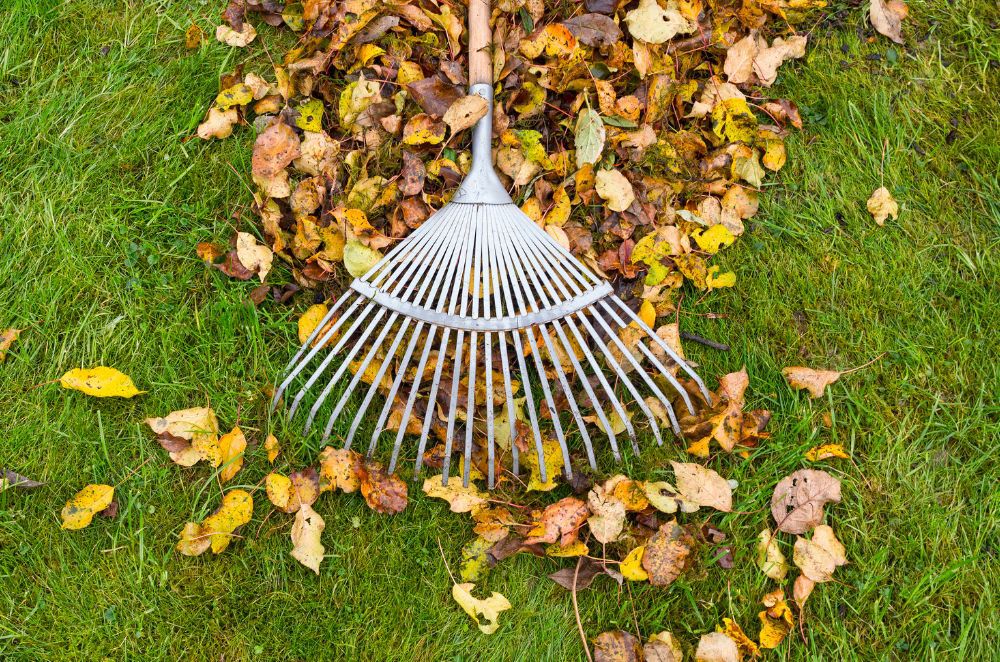
A blanket of autumn leaves in your yard may look picture-perfect. However, as dramatic as it may seem, those leaves can hide hazards that may endanger visitors on your property. If you don’t rake up leaves on your property, they can pile up, cause someone to get hurt, and leave you liable.
Procrastinating on raking the leaves can potentially be seen as negligence. Learn the hazards of leaf piles from our North Charleston premises liability attorneys at Joye Law Firm.
Why Leaf Piles Can Be Dangerous
Leaf piles can be an inconvenience that can pose a threat to people and property if left to pile up for too long. Under South Carolina’s premises liability law, you can be held responsible for injuries if you fail to maintain your property enough to keep it safe and do not warn guests of potential hazards.
For example, a delivery person tries to deliver a package, slips on the leaves covering your walkway, and is injured. The delivery person may be able to sue you for the cost of their medical bills and lost wages since your failure to clean up the leaves led to their injury.
What Makes Leaf Piles Dangerous?
The accumulation of leaves on your property can become a safety concern for visitors. Leaves can hide existing dangers on your land or create new ones.
- Hidden Trip Hazards: Leaf piles may cover cracked or uneven pavement or hide above-ground roots and rocks. They may also cover a hidden hole that can put passersby, neighborhood children, and anyone entering your yard at risk of getting hurt. According to the Restatement (Second) of Torts, Section 343A, federal law doesn’t hold you responsible for injuries on your property caused by an obvious hazard. However, if the danger isn’t clear, you must inform guests. By failing to clean up leaves, what would otherwise be an obvious hazard could suddenly become hidden and easy to miss.
- Blockage of Walkways and Roadways: Multiple leaf piles on your property’s walkways or along the street can be dangerous for pedestrians, bicyclists, and drivers. Cyclists might need to swerve to avoid the leaf piles and risk colliding with cars and other objects. Drivers might have no choice but to drive around the leaf piles, which can be particularly dangerous on small or busy streets.
- Slippery When Wet: If sprinklers or rain soak the leaves, they can become wet and create a slippery surface. Loose leaves don’t have much traction on dirt or pavement, especially if they’re wet. Although rare, the colder temperatures in autumn and winter can cause wet leaves to freeze, making them more of a risk for pedestrians, visitors, and delivery people. They can easily slip and fall while on your property because of fallen leaves that weren’t removed.
- Fire Risk: Parking a car on top of a pile of dry leaves left on your driveway or along the curb of your property can pose a potential fire danger. Your vehicle’s engine temperature can reach anywhere from 195 to 220 degrees, and it doesn’t cool down immediately after you turn off the car. These high temperatures make it more likely for your vehicle to ignite a pile of leaves. It may damage the underside of your vehicle, and the fire could spread to nearby objects and structures.
Homeowner Liability
The property owner’s home insurance usually covers the cost of accidents like these for victims. However, homeowners are still responsible for taking reasonable steps to ensure that visitors don’t get hurt.
The homeowner has a duty of care to keep their sidewalks, driveway, walkways, and other frequently traveled areas clear of wet and slippery leaves.
What To Do if You Slip on Leaves
If you slip and fall on leaves, you will need to take several steps to protect your rights, as the insurance company may argue that you should have been aware of the hazard the leaves posed, and as such the property owner can’t be held liable. They may even argue your injuries are unrelated to your fall.
- Get medical attention so your injuries can be treated and documented.
- Take photographs of the scene and trip hazard that injured you, if possible.
- Keep records of all medical treatment you received, along with resulting bills and lost wages.
- Contact a premises liability lawyer.
Get in Touch with the Premises Liability Lawyers at Joye Law Firm
The simplest way to protect others from the risks of loitering in leaf piles is to rake up loose leaves and either compost or bag them for trash pickup. However, even if you try to maintain your property properly, not everyone does. If you have a neighbor who neglects their property, it’s easy to get injured if you slip and fall on leaves covering their sidewalk.
If you have been involved in an accident involving fallen leaves, we encourage you to give us a call. We help people who are injured due to the negligence of others every day.
Call now for a free initial case review. There is never a charge or fee unless you receive a settlement.







































